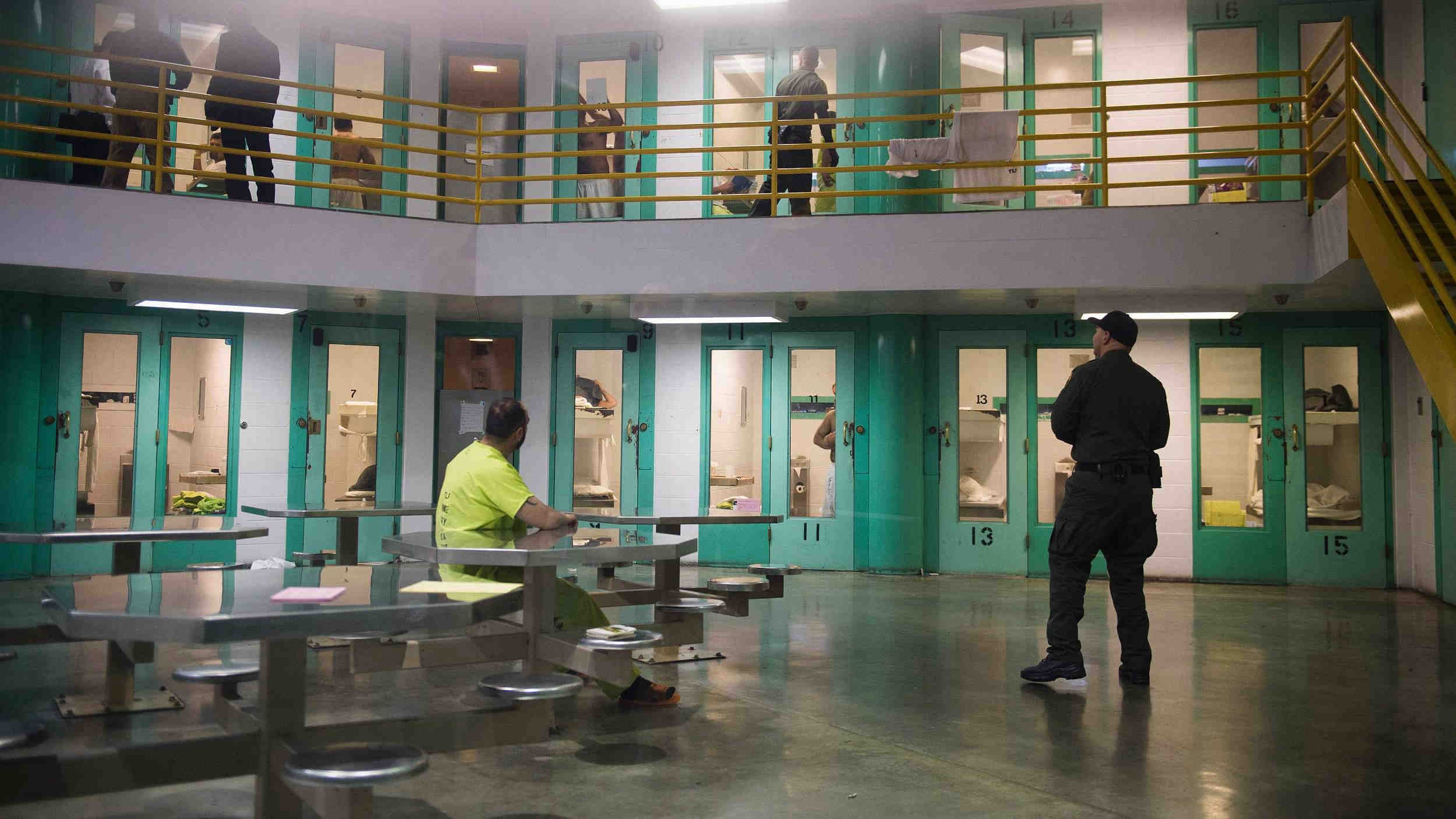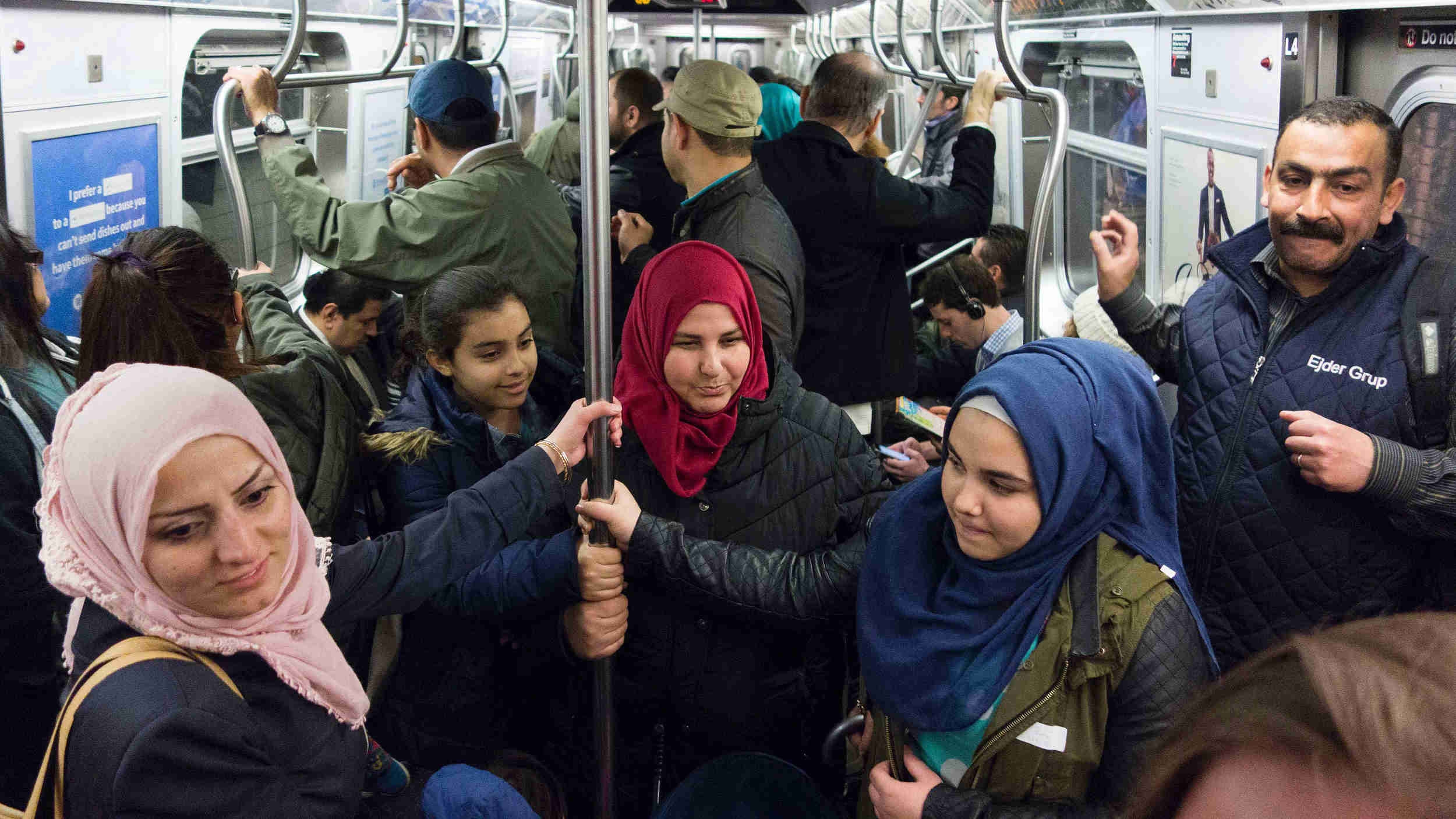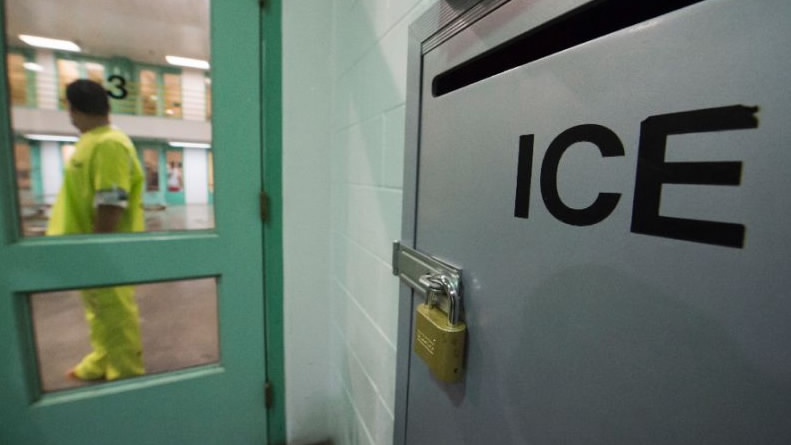A US judge has halted the deportation of all Iraqi nationals – some set to be removed as early as Tuesday – on the grounds they could be tortured or killed if returned to their home country.
US District Judge Mark Goldsmith on Monday expanded nationwide an earlier order affecting mostly Chaldean Christians who were arrested in immigration raids in the state of Michigan, causing alarm among Iraqi communities.
The judge said his latest order temporarily halts deportation proceedings against as many as 1,444 people, including in Tennessee and New Mexico.

Immigration detainees arrested by the US Immigration and Customs Enforcement are at a high security housing unit at the Theo Lacy Facility, a county jail in Orange, California, March 14, 2017. /VCG Photo
Immigration detainees arrested by the US Immigration and Customs Enforcement are at a high security housing unit at the Theo Lacy Facility, a county jail in Orange, California, March 14, 2017. /VCG Photo
The order comes as the federal government prepares to block certain citizens from six predominantly Muslim countries from traveling to the US, after the Supreme Court on Monday partially reinstated President Donald Trump's controversial travel ban ahead of a hearing on the case.
In a March deal between the US and Iraq, the Trump administration agreed to remove the Middle Eastern country from the initial version of its proposed ban, in exchange for Iraq agreeing to take in deported immigrants.
More than 100 Iraqi immigrants with criminal records were arrested in the Detroit area in an immigration raid earlier this month, prompting a lawsuit.

Demonstrators protest outside the office of Immigration and Customs Enforcement (ICE) against the US President Donald Trump's revised travel ban in Chicago, March 16, 2017. /VCG Photo
Demonstrators protest outside the office of Immigration and Customs Enforcement (ICE) against the US President Donald Trump's revised travel ban in Chicago, March 16, 2017. /VCG Photo
They were slated for deportation back to the war-torn Middle Eastern country.
"The community was caught off guard," Nathan Kalasho, a member of the Iraqi Chaldean Christian community in the Detroit area said.
"We have not faced a crisis like this in the United States for several years," he said.
Judge Goldsmith last week granted a temporary restraining order to pause any impending removals to give immigrants a chance to show that they would be in danger if sent home.

Protesters chant during a rally against the travel ban at San Diego International Airport on March 6, 2017 in San Diego, California. /VCG Photo
Protesters chant during a rally against the travel ban at San Diego International Airport on March 6, 2017 in San Diego, California. /VCG Photo
"The substantiated allegations made here are that detainees face extraordinarily grave consequences: death, persecution, and torture," Goldsmith wrote in expanding the order nationwide for 14 days.
US Immigration and Customs Enforcement (ICE) responded to an AFP inquiry by saying the agency intended to comply with the order.
"ICE is currently reviewing the judge's order to determine the appropriate next steps," spokesman Khaalid Walls told the news agency.

A group of Iraqi and Syrian refugee families ride the subways during a tour of Manhattan on April 21, 2017 in New York. /VCG Photo
A group of Iraqi and Syrian refugee families ride the subways during a tour of Manhattan on April 21, 2017 in New York. /VCG Photo
Earlier this month, the agency pointed out that those arrested in Michigan all had criminal convictions which qualified them for deportation.
But advocates claim many of those targeted have lived in the US for decades and led responsible lives after brief brushes with the law.
"It's unfair to term them as criminals after they've served their debt to society," Kalasho said.
"There were people who were swept up over marijuana possessions as far back as the '80s," he added.
(Source: AFP)
Related story:






